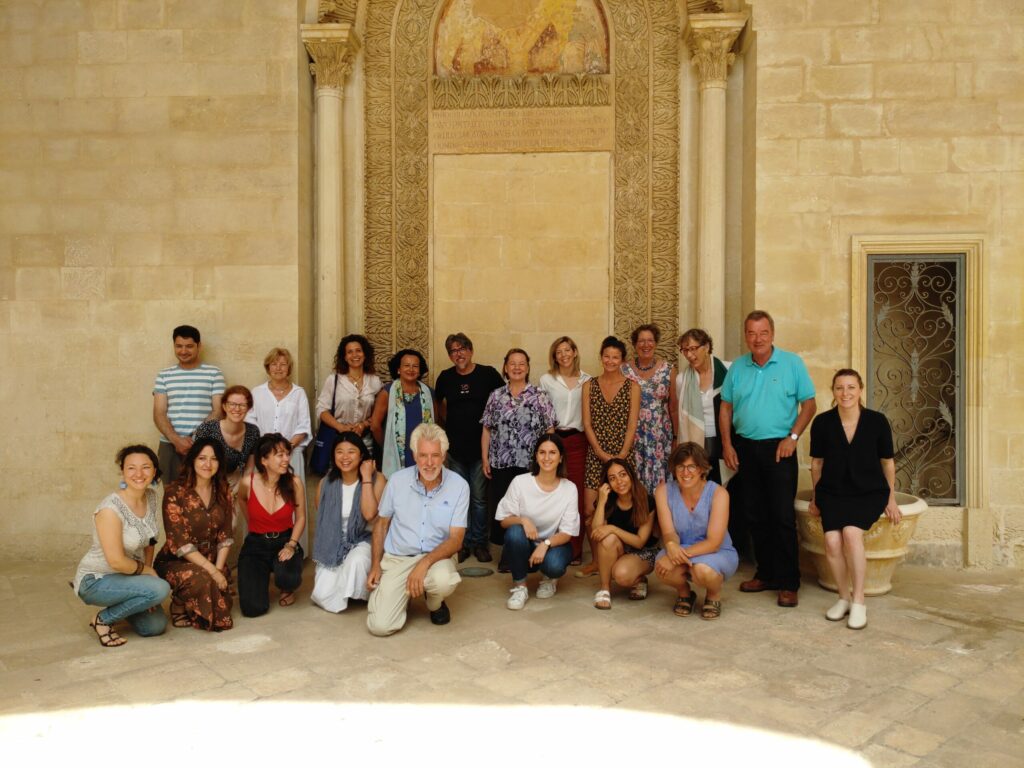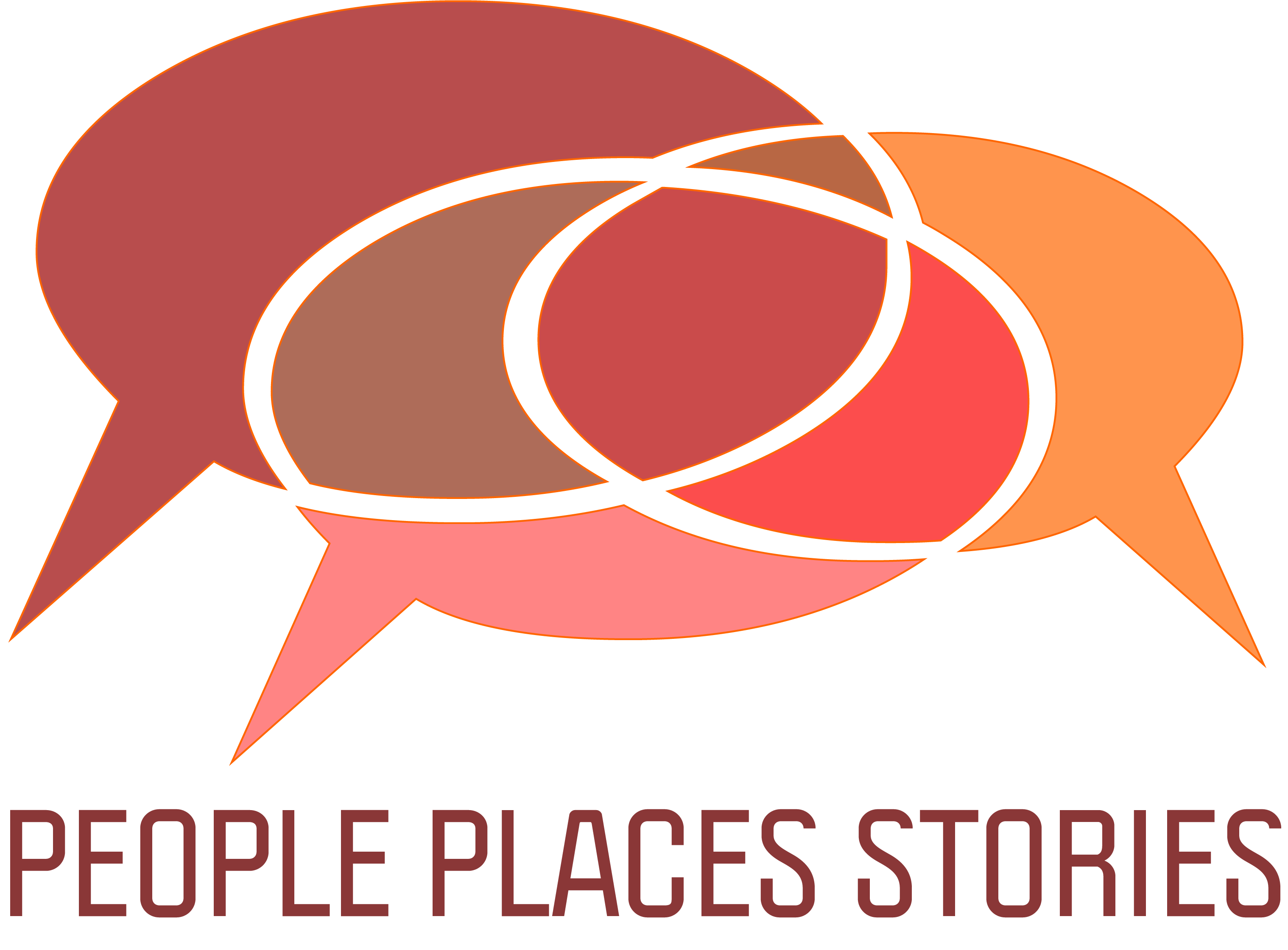PPS Training Course in Lecce
A joint training course for PPS staff took place in Lecce from 22 to 27 May.
At the invitation of the University of Salento, around 30 participants came together in the monastery of Olivetani. The historic venue, now used by the University of Salento, provided the right setting for a course on building a heritage community.
A full and very varied programme awaited the participants. Experts gave input on relevant topics such as values, adult education and the Faro Convention. Methods for building heritage communities were presented. Participants gained insights and experienced storytelling, thanks to Shona Cowie, a Scottish storyteller, and Placetelling, a method taught by the University of Salento.
To deepen the understanding of these inputs and to put them into practice, participants worked in groups on concrete case studies. Some participants brought examples from communities in which they are active. Applying the inputs to real case studies equipped all participants with valuable skills for building heritage communities. Those who brought their examples left Lecce with many ideas and suggestions on how to build and expand their community. It was fascinating to see how the guidelines and methods were applied to very different cases. Examples covered a wide range of heritage: from Egyptian cuisine to the oldest tide mill in Britain. Some communities have existed for so long that they need a fresh approach for a breath of fresh air. Others are still in their infancy and the question of how to implement and grow a community with its organisational structures was the main takeaway from the course.
For the afternoons, the University of Salento put together an extensive excursion programme to Heritage Communities in Salento. Participants visited and spoke with community members at places such as a mill run by local people, a working laboratory for active citizenship, the Salento Natural History Museum and a theatre performance in a castle. The experience was rounded off by enjoying one of the most important cultural assets of the region: the fantastic food.


